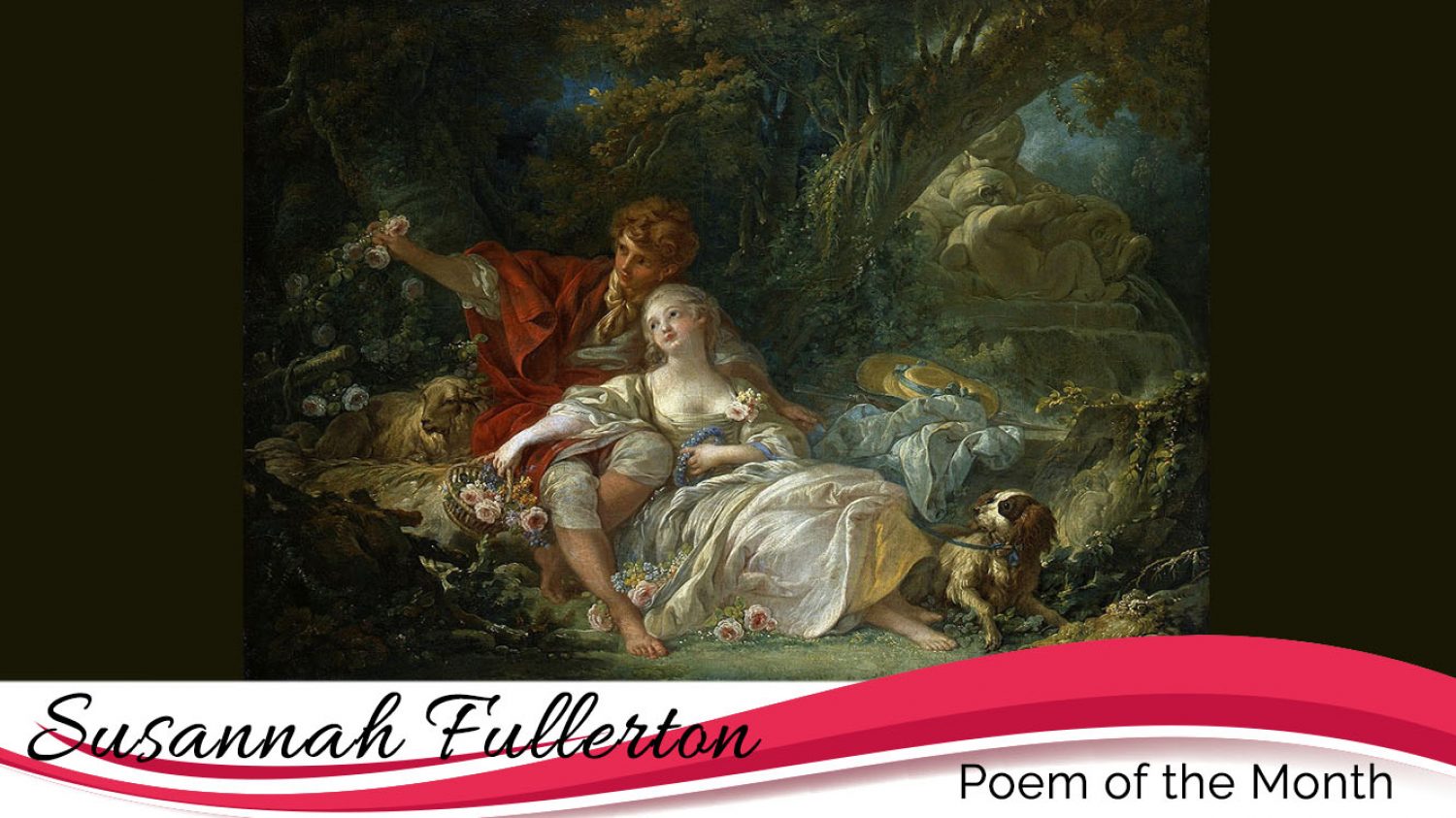Last month I discussed Christopher Marlowe’s poem A Passionate Shepherd to his Love, and this month I’d like to discuss the famous reply to that poem by Sir Walter Raleigh. Marlowe’s poem was the work of a young man – romantic and idealistic.
Raleigh wrote his response in 1600, one year after Marlowe’s work had appeared. He was in his late 40s, so well past the age of youthful idealism, and his poem shows a deep awareness of the passing of time – flowers fade, clothes wear out, the seasons succeed each other rapidly, and a bed of straw for someone in middle age is not an enticing prospect.
The poem is an almost line-for-line refutation of Marlowe’s sentiments, written in the same pastoral poetic style.
The nymph tells her ardent suitor that life’s pleasures are fleeting and that she is not to be easily won by grandiose offers and sweet words. He is hot and impetuous; she is rational and cool, contrasting his hypothetical vision with her own reasoned view of his proposals. The poem begins in the subjunctive mood, and initially she seems to adhere to his suggested happy endings, before mockingly undermining his vision. She understands mortality and sees the folly of his materialistic gifts.
The Nymph’s Reply to the Shepherd by Sir Walter Raleigh
If all the world and love were young,
And truth in every shepherd’s tongue,
These pretty pleasures might me move
To live with thee and be thy love.
Time drives the flocks from field to fold
When Rivers rage and Rocks grow cold,
And Philomel becometh dumb;
The rest complains of cares to come.
The flowers do fade, and wanton fields
To wayward winter reckoning yields;
A honey tongue, a heart of gall,
Is fancy’s spring, but sorrow’s fall.
Thy gowns, thy shoes, thy beds of roses,
Thy cap, thy kirtle, and thy posies
Soon break, soon wither, soon forgotten:
In folly ripe, in reason rotten.
Thy belt of straw and Ivy buds,
Thy coral clasps and amber studs,
All these in me no means can move
To come to thee and be thy love.
But could youth last and love still breed,
Had joys no date nor age no need,
Then these delights my mind might move
To live with thee and be thy love.
You can listen to a Scottish ‘nymph’ read it here:
And a musical version here:
What do you think of Raleigh’s response? Does it successfully answer Marlowe’s youthful idealism? Did you enjoy the musical adaptation? Tell me what you think by leaving a comment.
Comments are moderated, and will not appear until approved.
[DISPLAY_ULTIMATE_PLUS]


Anne
I did like the musical version. Raleigh’s response allows for maturity in the shepherdess that may not have been there when Marlow first penned his poem, I’m for the romance.
Susannah Fullerton
You are a romantic! So glad you enjoyed the musical version. It’s always interesting to see which poems have been set to music.
Deb Tait
I much preferred the reading to the song. So down to earth and such a beautiful accent. Wonderful!
Susannah Fullerton
I agree!
Saly Petherbridge
Another response to a poem, on similar lines, that I have enjoyed is ‘His Coy Mistress to Mr Marvell’ by A D Hope.
Susannah Fullerton
Yes, that’s another fabulous poetic response!
Annie
I really enjoyed and loved the musical version very moving. Oh that we spoke like that to each other now!
Susannah Fullerton
Yes, it is very beautiful language, especially in comparison with the slang and emojis of today.
So glad you enjoyed it.
Honey
I would rather hear you read it. I love your voice.